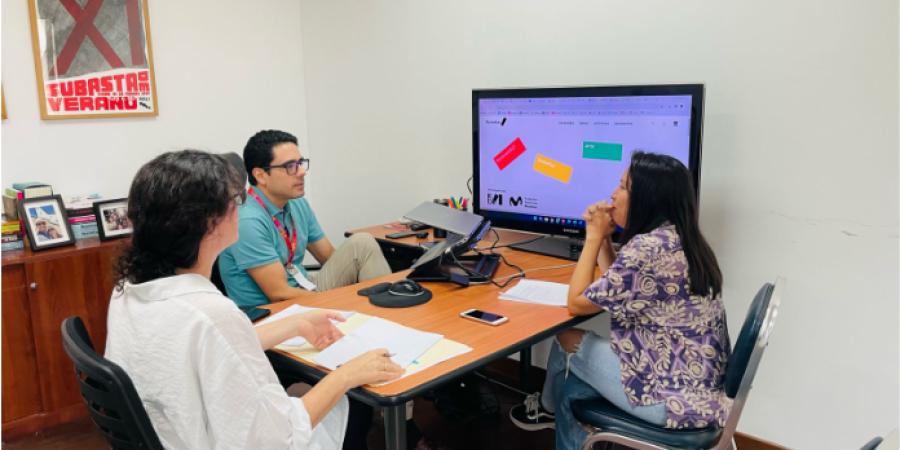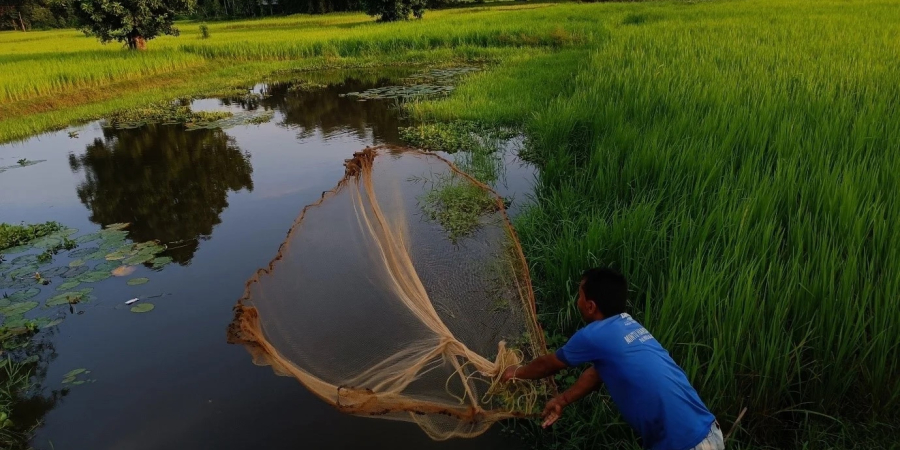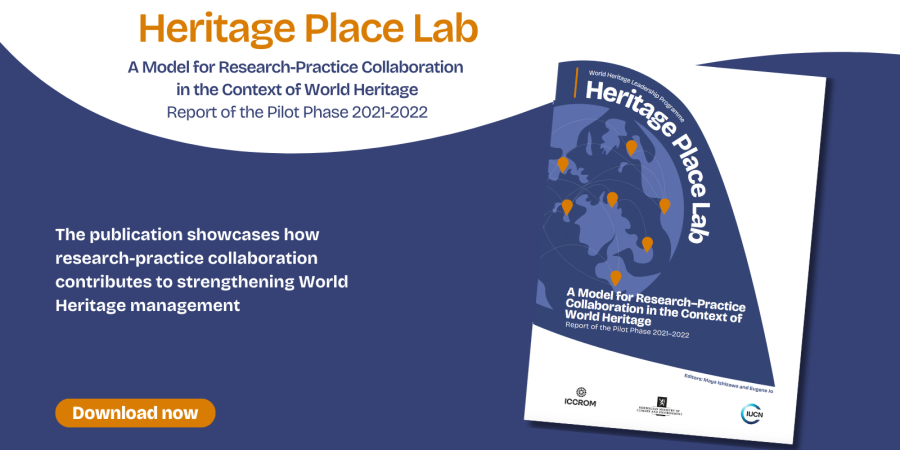Featured

ICCROM's first course on Sustainable Digital Heritage empowers institutions to build projects centering user needs
Since 2021, the Sustaining Digital Heritage (SDH) programme, has set out with partners AVP and Netherlands Institute for Sound and Vision (NISV) to understand the preservation and access needs for digital heritage worldwide and to build a self-sustaining network of digital heritage leaders. The broader aim of the programme is to enhance the storytelling potential of digital heritage, as well as...

Welcome to a new platform: Embracing Indigenous and Traditional Knowledge in Disaster Risk Reduction
Integrating indigenous and traditional knowledge into our Disaster Risk Reduction (DRR) toolkit offers numerous benefits. This knowledge stems from communities' close relationships with their environment and their accumulated experience in predicting hazards by reading signs in the sea, skies, and wildlife.

Welcome to a new platform: Embracing Indigenous and Traditional Knowledge in Disaster Risk Reduction
Integrating indigenous and traditional knowledge into our Disaster Risk Reduction (DRR) toolkit offers numerous benefits. This knowledge stems from communities' close relationships with their environment and their accumulated experience in predicting hazards by reading signs in the sea, skies, and wildlife.

Welcome to a new platform: Embracing Indigenous and Traditional Knowledge in Disaster Risk Reduction
Integrating indigenous and traditional knowledge into our Disaster Risk Reduction (DRR) toolkit offers numerous benefits. This knowledge stems from communities' close relationships with their environment and their accumulated experience in predicting hazards by reading signs in the sea, skies, and wildlife.

Welcome to a new platform: Embracing Indigenous and Traditional Knowledge in Disaster Risk Reduction
Integrating indigenous and traditional knowledge into our Disaster Risk Reduction (DRR) toolkit offers numerous benefits. This knowledge stems from communities' close relationships with their environment and their accumulated experience in predicting hazards by reading signs in the sea, skies, and wildlife.

New publication showcases how research-practice collaboration contributes to strengthening World Heritage management
The new publication “Heritage Place Lab. A Model for Research-Practice Collaboration in the Context of World Heritage. Report of the Pilot Phase 2021-2022” presents the testing of a methodology for collaborative work between academics and site managers and showcases the resulting research agendas prepared by research-practice teams from Argentina, Ghana, Guatemala, India, Norway and Zimbabwe.

New publication showcases how research-practice collaboration contributes to strengthening World Heritage management
The new publication “Heritage Place Lab. A Model for Research-Practice Collaboration in the Context of World Heritage. Report of the Pilot Phase 2021-2022” presents the testing of a methodology for collaborative work between academics and site managers and showcases the resulting research agendas prepared by research-practice teams from Argentina, Ghana, Guatemala, India, Norway and Zimbabwe.

New publication showcases how research-practice collaboration contributes to strengthening World Heritage management
The new publication “Heritage Place Lab. A Model for Research-Practice Collaboration in the Context of World Heritage. Report of the Pilot Phase 2021-2022” presents the testing of a methodology for collaborative work between academics and site managers and showcases the resulting research agendas prepared by research-practice teams from Argentina, Ghana, Guatemala, India, Norway and Zimbabwe.

New publication showcases how research-practice collaboration contributes to strengthening World Heritage management
The new publication “Heritage Place Lab. A Model for Research-Practice Collaboration in the Context of World Heritage. Report of the Pilot Phase 2021-2022” presents the testing of a methodology for collaborative work between academics and site managers and showcases the resulting research agendas prepared by research-practice teams from Argentina, Ghana, Guatemala, India, Norway and Zimbabwe.

New publication showcases how research-practice collaboration contributes to strengthening World Heritage management
The new publication “Heritage Place Lab. A Model for Research-Practice Collaboration in the Context of World Heritage. Report of the Pilot Phase 2021-2022” presents the testing of a methodology for collaborative work between academics and site managers and showcases the resulting research agendas prepared by research-practice teams from Argentina, Ghana, Guatemala, India, Norway and Zimbabwe.
